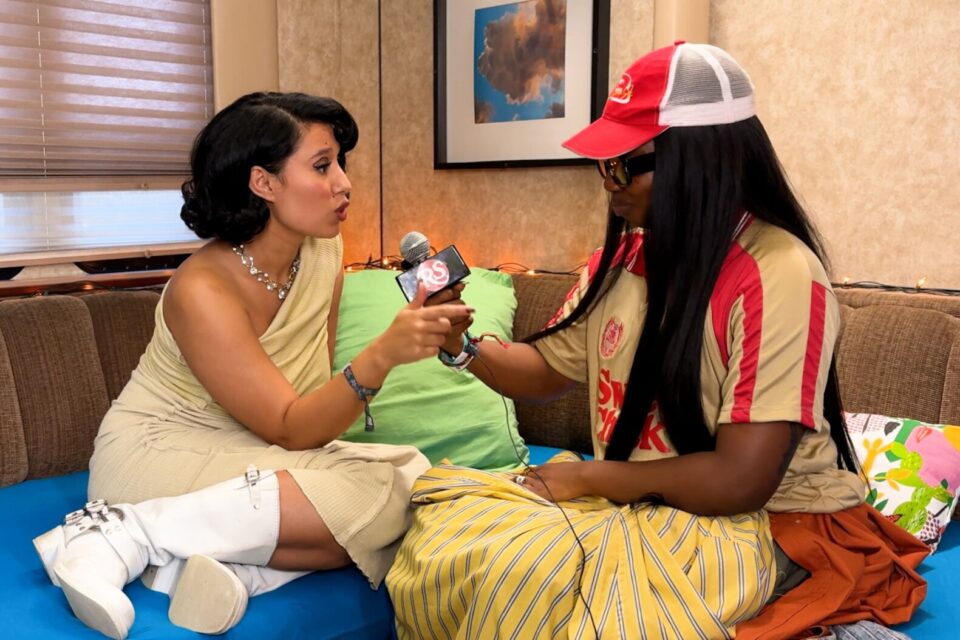Raye Calls Out Manipulative and ‘Evil’ Music Industry Practices That Exploit Songwriters
Backstage at Coachella, the singer and songwriter advocated passionately for songwriters to be paid fairly and respected in the same way that artists and producers are
Raye first began building her portfolio as a songwriter when she was around 15 years old and was placed in writing rooms to craft hooks, melodies, and verses for other artists. So much has changed for her in the decade since then. Last year, the singer and songwriter released her long-awaited debut album, My 21st Century Blues, to widespread acclaim. And just last month, she made history at the 2024 Brit Awards when she took home six wins out of her seven nominations. But while Raye’s rising star is blazing, there are so many experiences from throughout her career as a songwriter that linger and plague her peers in the art form.
“This is an industry based on songs. We’re all here at Coachella essentially to watch songs we love, hear the lyrics and the melodies that we love. And there are some incredibly, stupidly, ridiculously talented people who can’t pay their rent who are writing the songs,” Raye told Rolling Stone backstage at Coachella this weekend. “And it’s incorrect, and it’s wrong. It is just evil if I’m going to be transparent. I can rant about this for a long time. But we need to start having these conversations loudly, and we need artists with big platforms and big songwriters to help take a stand.”
Detailing the exploitation that songwriters often face, Raye recalled one particularly wicked industry practice. “Songwriters are being manipulated,” she explained. The conversation, which she notes “has happened to me very many times” while dealing with record labels, usually goes something like this: “We’re going to use the song that you wrote. If you don’t approve your 10 percent split right now and approve the fact that you will be getting no master royalty points — if you don’t sign this agreement right now — the songs not going to come out. We’re not going to use it. All your hard work will go to waste.”
The result, she added, is an overly competitive spirit among songwriters who begin to take aim at each other over minuscule percentage splits for songwriting credits when the bigger issue rests in when and how they’re being paid in the first place. “What should be happening is from the top — a respect payment. Cover food and travel, please. If a songwriter is pulling up to write a song for your artists or for a pitch session or whatever, food and travel. Come on. Isn’t that just like human rights?”
The absence of basic funding and respect then trickles down to the people who can sit in those rooms in the first place, Raye explains. “Are we saying now that if you’re rich and you come from wealth and from money that you can be a songwriter because you can keep yourself afloat? You can do it for passion for the love?” she asked. “But I’m saying some of the best songwriters we have come from real life, real working-class backgrounds. And that’s where some of the best stories are. We’re listening to music is a commentary on the human experience. That’s where the songs are. And you’re going to treat those people like expendable parts? Evil, manipulative, nasty things happening.”
Even as Raye continues to bask in the spotlight that she’s fought throughout her career to emerge beneath, she’s passionately and relentlessly advocating for the songwriters who are currently where she once was — dealing with those same unsustainable systems that value-creating songs for radio play and prioritizing paying producers over paying the people who wrote those songs more than fractions of a dollar years after they crafted a hit.
“I feel very passionately about that needing to be fixed,” Raye concluded. “There’s a really bad problem going on — but songwriters needs to be correctly paid and respected. Full stop.”
From Rolling Stone US.








